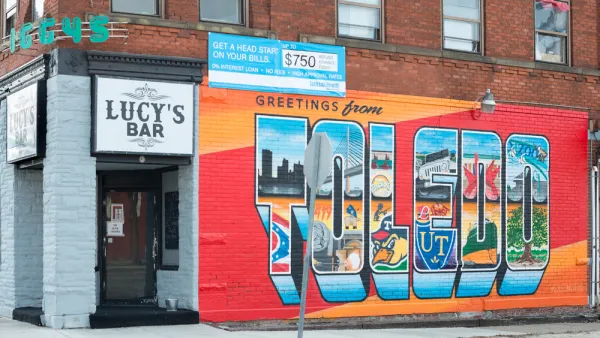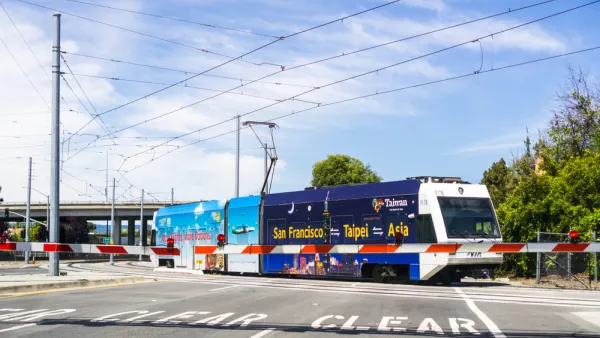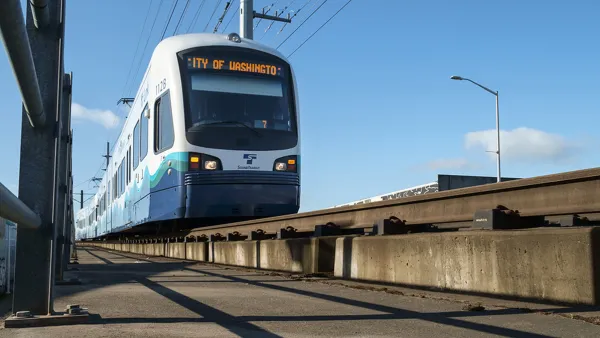Boston, Washington D.C., San Francisco, and Los Angeles—all major cities that have mulled transit fare increases in recent months. Eric Jaffe examines the numbers behind the continuous need for transit agencies to raise the price of a fare.
“The reason local agencies seem to need so many fare increases is that they do a poor job keeping the price of taking a ride near the cost of providing it,” writes Eric Jaffe. To further examine the gap between cost and price, Jaffe examines new data from the U.S. Department of Transportation.
After concluding that average fares per mile from 2000 to 2010 for the ten largest U.S. transit agencies didn’t change much (just a 1 percent increase a year). Jaffe then compares average fares per mile to the average cost of operating the service per mile over the same period. “In 2000, that [operating] cost was $9.05; in 2010, it had climbed to $10.82. That's an increase of 19 percent — or about 2 points a year — nearly doubling the growth rate of fares.”
In so doing, Jaffe recognizes “an ever-widening gap between what the biggest transit agencies spend running their service and what they recover from riders.” In fact, “In 2000, the top agencies recovered nearly 40 percent of their costs through fares. That figure has since dipped below 37 percent.”
Jaffe also examines the differences in fare recovery for different modes and identifies a culprit in the inability to keep costs down (hint: it’s not salaries).
FULL STORY: The Real Reason Mass Transit Fares Are Rising Across the U.S.

Analysis: Cybertruck Fatality Rate Far Exceeds That of Ford Pinto
The Tesla Cybertruck was recalled seven times last year.

National Parks Layoffs Will Cause Communities to Lose Billions
Thousands of essential park workers were laid off this week, just before the busy spring break season.

Retro-silient?: America’s First “Eco-burb,” The Woodlands Turns 50
A master-planned community north of Houston offers lessons on green infrastructure and resilient design, but falls short of its founder’s lofty affordability and walkability goals.

Test News Post 1
This is a summary

Analysis: Cybertruck Fatality Rate Far Exceeds That of Ford Pinto
The Tesla Cybertruck was recalled seven times last year.

Test News Headline 46
Test for the image on the front page.
Urban Design for Planners 1: Software Tools
This six-course series explores essential urban design concepts using open source software and equips planners with the tools they need to participate fully in the urban design process.
Planning for Universal Design
Learn the tools for implementing Universal Design in planning regulations.
EMC Planning Group, Inc.
Planetizen
Planetizen
Mpact (formerly Rail~Volution)
Great Falls Development Authority, Inc.
HUDs Office of Policy Development and Research
NYU Wagner Graduate School of Public Service




























